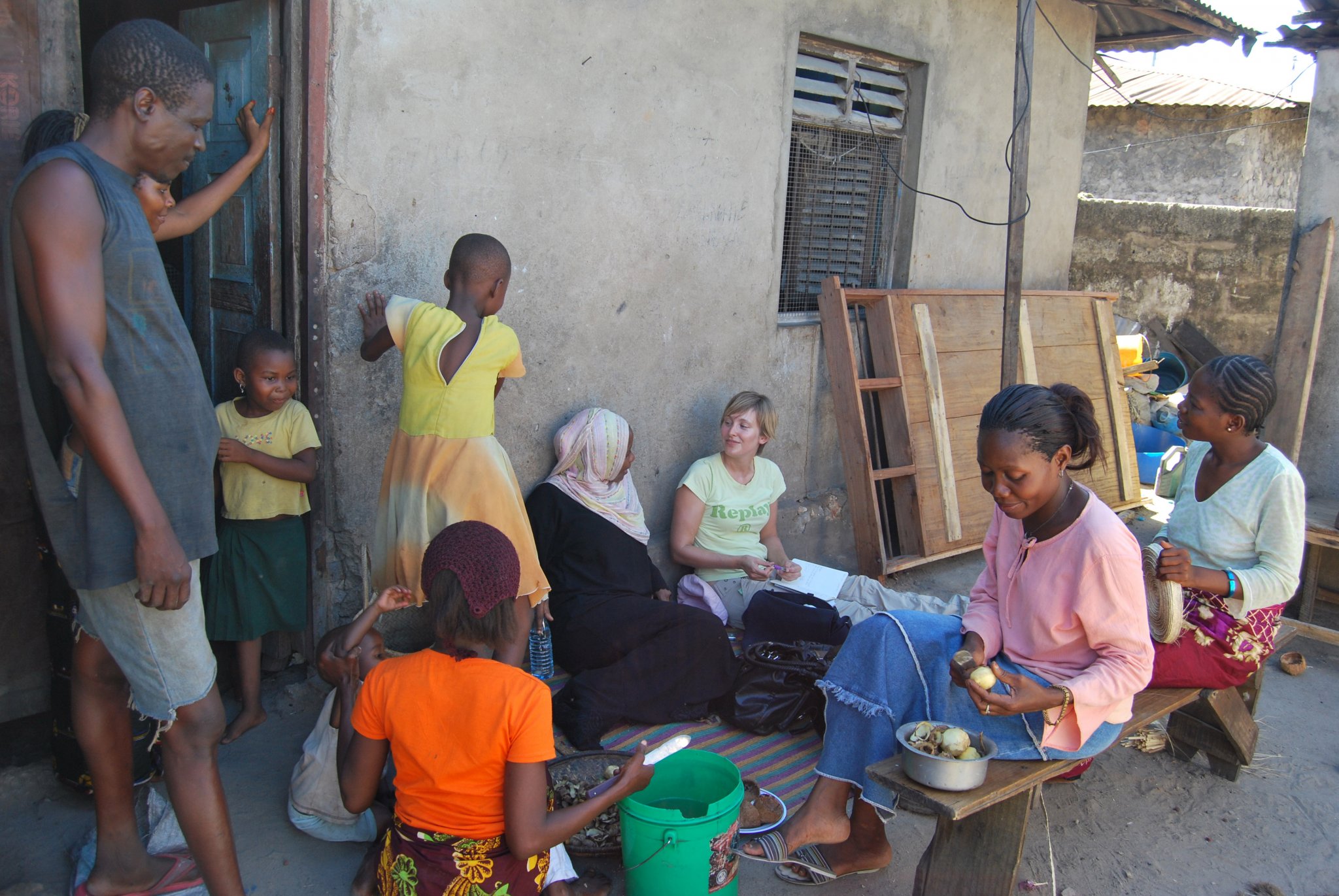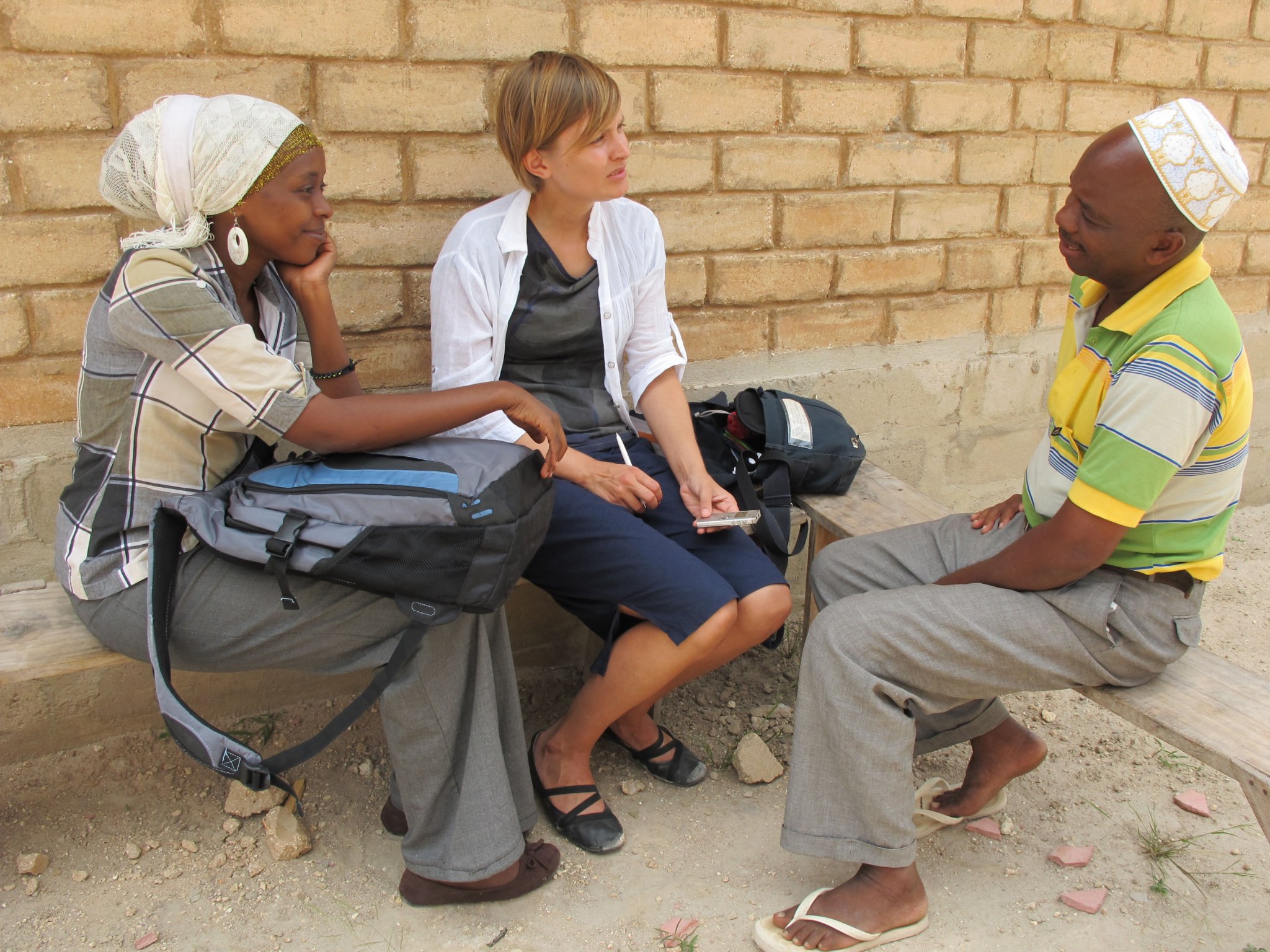Recognition
This PhD was awarded the second prize of the EDAMBA competition 2019, as one of the best PhD theses from European Business School
In short
Sara Lindeman’s thesis addresses the global challenge of poverty, and explores what kind of market organizing could provide a sustainable solution. Understanding the early stages of market organizing is important because it sets the direction for the market organizing process. In 2017, the total world population was estimated at
7,6 billion people, and by 2050 it is expected to reach 9,7 billion (UN, 2017). The majority of this increase will take place in what currently is low-income subsistence settings. The future of these communities will influence environmental sustainability as well as social stability and refugee flows globally.

Purpose, methods and field work
The purpose of this research was to study early-phase market organizing in subsistence settings and its implications on capabilities for achieving well-being. To this end, three research questions were asked.
How do companies innovate for low-income markets?
How are markets formed in subsistence settings?
What should be evaluated to understand how early-phase market organizing influences capabilities for achieving well-being?
The research questions were explored through ethnographic field work in subsistence settings in Ethiopia, India, Tanzania, and Brazil, and the results are shared as three published articles.
Articles
The first article studied two inclusive innovation processes inside two larger companies, Nokia and ABB. The innovation cases were the Nokia Village Connection and ABB mini hydro power. Nokia Village Connection is an innovation that enables mobile grid expansions into remote areas, and it was developed in India. The ABB mini hydro power case is a new business development
project in Ethiopia, that aimed to create an innovative distributed renewable energy solution for un-electrified rural areas. The study took the intrapreneurs perspective, and both cases describe situations where the innovations require market creation.
The second article investigated market dynamics and market formation in subsistence settings. It empirically studied informal waste practices in two mid-sized cities: Dar es Salaam in Tanzania and Belo Horizonte in Brazil. The two cases represent different degrees of organizing into market governance. In the Belo Horizonte case, waste collector organizing had been going on for 15 years with the support of a local NGO, and it has resulted
in the formation of an association of waste collectors as well as the establishment of national regulation on waste collection in Brazil. The situation in Dar es Salaam, on the other hand, was comparative to the situation 15 years ago in Belo Horizonte. The studies take a birds-eye perspective to early phase market organizing.

The third article bridges the conceptual gap between the phenomenon of escaping a life in poverty and the phenomenon of market organizing. The empirical case shows how slum dwellers evolved from being victims of eviction to becoming a driving force in organizing affordable housing in innovative ways.
The study took the perspective of the subsistence persons, and focused on the practices of the informal community-based organization, and its local support NGO. In particular, the study looked at how these organizations together initiated and executed a pioneer affordable housing project in Chamazi, Dar es Salaam, that influences the housing sector nationally.
Key finding areas
There are four key findings of this thesis. These relate to
- The establishment of market practices in early market organizing.
- The establishment of agency for early market organizing in subsistence settings.
- The facilitation of market organizing in subsistence settings.
- The influence of market organizing on capabilities for achieving well-being.
The main theoretical contributions of this thesis relate to enhancing the understanding of agency.
THEORETICAL FRAMEWORK
Sara Lindeman’s thesis introduces a market organizing perspective to the study of subsistence marketplaces. The research builds on a new stream of marketing research that study the ongoing process of market organizing rather than marketing activities (Araujo, Finch & Kjellberg, 2010; Araujo and Kjellberg
2016; Kjellberg & Helgesson, 2007a, 2006; Storbacka & Nenonen, 2015). By combining this with the capability approach from development economics that conceptualized multidimensional poverty (Sen 1999), this thesis provides conceptual tools for evaluating entrepreneurial and market-driven approaches.
CONTRIBUTION AND IMPLICATIONS
This perspective helps to situate the analysis of both the people living under subsistence conditions and the organizations engaging in these markets within a broader process of social organizing. It highlights the nondeterministic nature of organizing in subsistence settings and enables the study
of power relations in subsistence marketplaces through the notion of agency. This improved understanding of agency in subsistence marketplaces creates the foundation for a theoretically rigorous evaluation of the impact on poverty reduction.
Sara Lindeman
Project Initiator and Lead, Researcher Business Sustainability Innovations